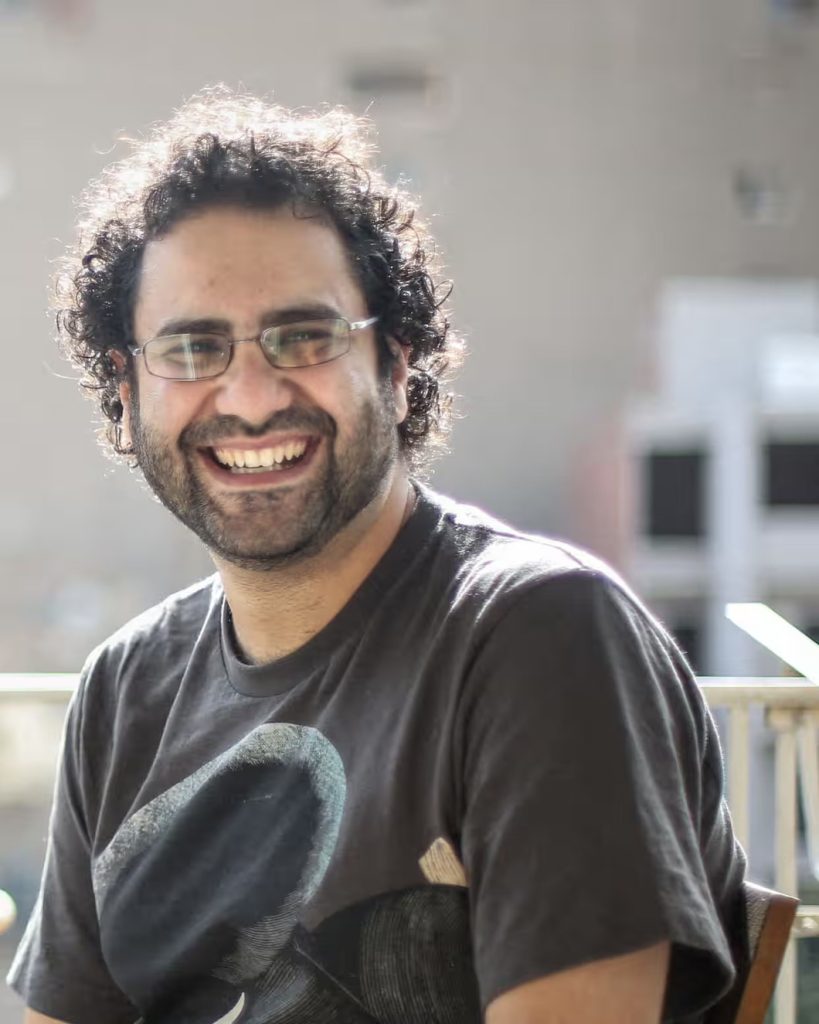UN Declares Alaa Abd el-Fattah’s Detention by Egypt Illegal
British-Egyptian writer and human rights advocate Alaa Abd el-Fattah is being unlawfully detained by Egyptian authorities, according to the findings of an independent United Nations panel following an 18-month investigation.
Currently imprisoned in Cairo, Abd el-Fattah’s situation has led his mother, Laila Soueif, to launch a hunger strike from the UK. Now on her 241st day without solid food, Soueif holds a daily one-hour vigil outside Downing Street—the maximum her deteriorating health allows. She has reportedly lost half her body weight since beginning the protest.
Last week, UK Prime Minister Keir Starmer repeated his call for Egyptian President Abdel Fatah al-Sisi to show clemency, emphasizing the deep distress the case has caused the family.
In a report shared with the family, the UN Working Group on Arbitrary Detention urged the Egyptian government to act without delay to address the situation. “The appropriate remedy would be to release Abd el-Fattah immediately and accord him an enforceable right to compensation and other reparations, in accordance with international law,” the report stated.
In a rare move, Egypt presented a full defense of its actions to the UN panel. However, the UN experts strongly criticized Egypt’s judicial practices, highlighting the erosion of free speech and the absence of legal safeguards.
The panel concluded that Abd el-Fattah’s imprisonment is both arbitrary and unlawful. It cited the lack of a valid arrest warrant, failure to explain the charges, and the absence of a fair trial. The panel determined that he was targeted for expressing his political views and exercising his right to free speech.

Although Egypt is not legally required to comply with the UN’s recommendations, the findings further tarnish its international image, particularly as Abd el-Fattah remains one of the country’s most prominent intellectuals.
He was arrested in September 2019 and, in December 2021, sentenced to five years in prison for allegedly spreading false news and damaging Egypt’s national interest—charges stemming from a Facebook post about the death of a fellow inmate.
His lawyer, British barrister Can Yeğinsu, welcomed the decision: “The UN working group has delivered a clear and unequivocal decision: Alaa Abd el-Fattah’s detention is arbitrary and in breach of international law. Egypt is now obligated to release Alaa immediately.”
Richard Ratcliffe, whose wife Nazanin Zaghari-Ratcliffe was imprisoned in Iran for five years, reflected on the ruling’s significance: “Being included in a WGAD decision is a grim milestone. You wrestle with whether to submit a case, then wait for years. But when the verdict comes, it’s a moment of clarity—a recognition of injustice under international law. The crime isn’t Alaa’s; the crime is keeping him behind bars and driving his family to desperation.”
He added: “For our family, the WGAD ruling finally pushed the UK government into action. For Alaa’s, time is more urgent. This decision must be acted on now. The law is clear—and so is the cost of ignoring it.”
Alaa’s cousin, filmmaker and writer Omar Robert Hamilton, urged the UK to escalate the matter by taking Egypt to the International Court of Justice.
The UN panel also condemned Egypt’s use of vague legal terms such as “spreading false information,” arguing they conflict with global standards on freedom of expression and should be abolished. The report further criticized the practice of “rotation sentencing”—in which authorities alter charges to reset pre-trial detention periods—as potentially constituting a crime against humanity.

